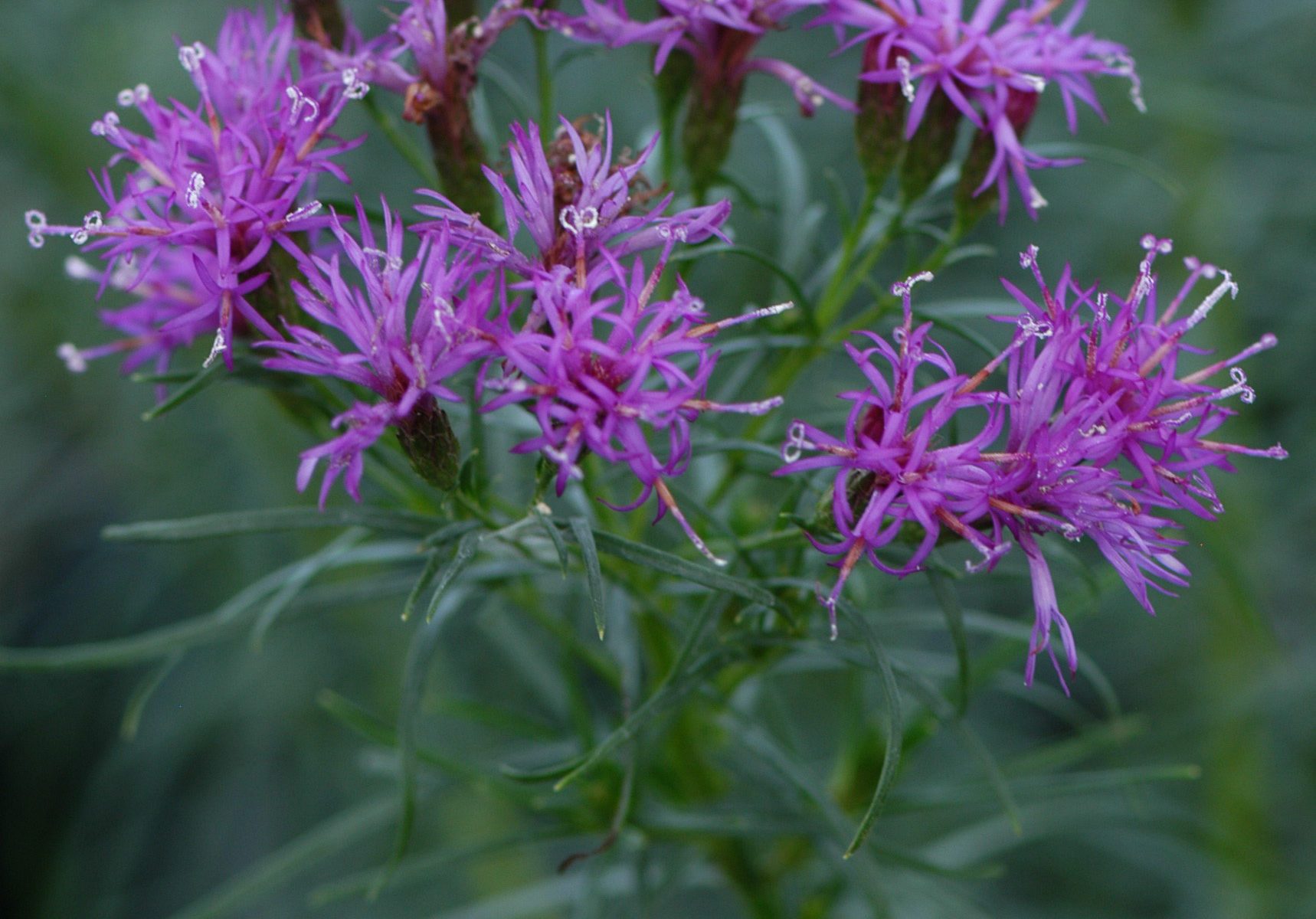
Submitted by Dr. Sue Hamilton, Director of the University of Tennessee Gardens
Vernonia lettermannii, also known as narrow-leaf ironweed, is a species of ironweed native to Oklahoma and Arkansas that is also well suited for the home landscape in Tennessee. Better yet, it’s a butterfly magnet in late summer.
The cultivar ‘Iron Butterfly’ was recently selected by Dr. Allan Armitage’s from his trials at the University of Georgia for its soft, fine foliage similar to Amsonia hubrichtii and for being a compact, well-branched and vigorous plant. Because of its fine-textured foliage I find Iron Butterfly an attractive plant even when not in flower, but when it’s in flower, this native perennial is a must have in your garden!
In late summer Iron Butterfly is covered with tiny, royal purple flowers that attract plenty of butterflies. Found in rocky flood plains, Vernonia lettermannii is tolerant of infertile soils, hot dry locations, yet can withstand brief periods of flooding. Growing to just 24” to 36” tall and wide, it is ideal for use in the foreground or middle of a perennial border or a mixed garden. Massing in odd-numbered groups of three, five, seven or more is really striking in the landscape and will provide you a showcase of butterflies in late summer.
‘Iron Butterfly’ thrives in full to part sun and is a great plant for rain gardens where soils can go from being dry to moist.
The genus Vernonia is a large one, with about 1000 species, but no matter which species in the genus you select, ironweed is attractive to butterflies. Some cultivars other than Iron Butterfly are also deer resistant, Woolly Ironweed, for example. So, depending on your conditions, some varieties might make even better selections for some gardens.
Dr. Sue Hamilton is on the faculty in the University of Tennessee Department of Plant Sciences and also serves as Director of the UT Gardens. The University of Tennessee Gardens located in Knoxville and Jackson are part of the UT Institute of Agriculture. Their mission is to foster appreciation, education and stewardship of plants through garden displays, collections, educational programs and research trials. The gardens are open during all seasons and free to the public.
See http://utgardens.tennessee.edu/ and http://westtennessee.tennessee.edu/ornamentals/ for more information.
Contact:
Dr. Sue Hamilton, Director of the UT Gardens
Patricia McDaniels, UTIA Marketing and Communications Services, 615-835-4570